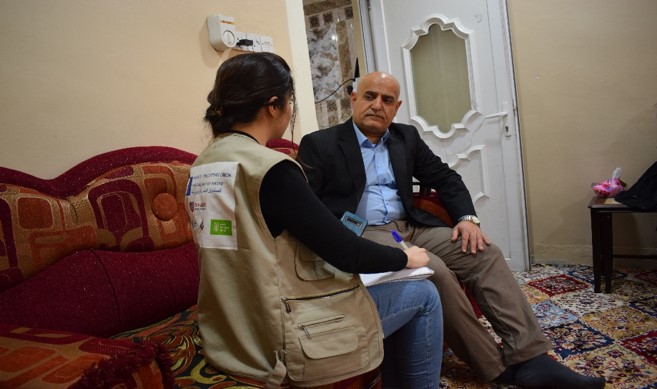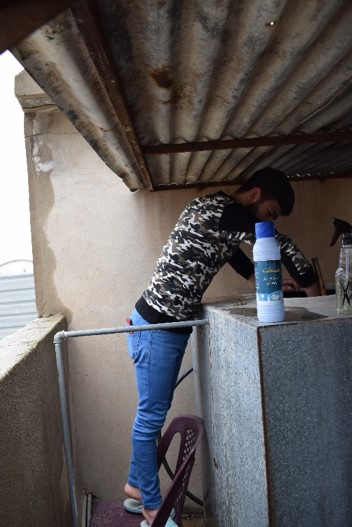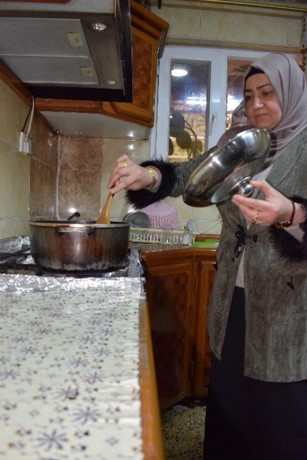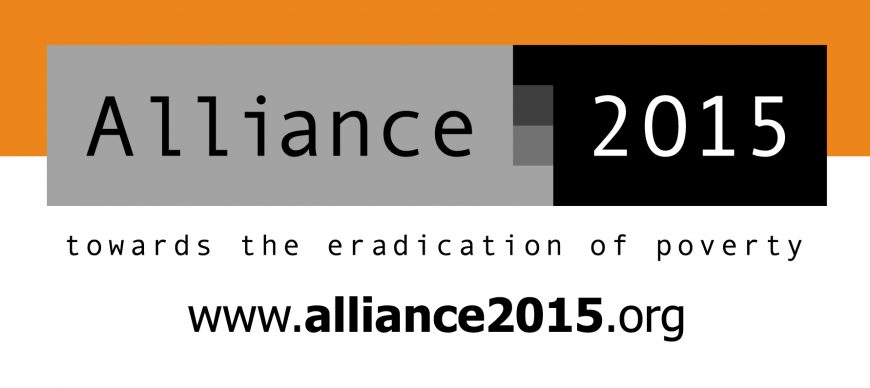Khalid, 55, was working in a local jam factory in West Mosul when ISIL arrived.
As opposed to the countless families who fled Mosul at this time, Khalid and his family stayed, despite having to live in constant fear and seeing basic services sharply pulled out fromunderneath them. Given the scarcity of goods, the family fell into the habit of neglecting their hygiene.
People in Need’s (PIN) rehabilitation of water networks in Khalid’s neighbourhood has ensured that families have access to clean water to support them in restoring the normal daily hygiene habits.
Improving Water Access and Promoting Behavioural Change
Khalid lives with his family of six in Al-Numaniya, a neighbourhood where the community suffered from a lack of water and sanitation services, following the liberation from ISIL in 2017.
PIN’s first action was to restore the water network which led to immediate improvement. “Many families sold their houses in Al-Numaniya neighborhood due to the lack of water; however, since PIN rehabilitated the water network, families are having sufficient and clean water. This is helping people remain in their houses and ease their daily life,” said Khalid.
PIN also conducted a behavioral change campaign to reaffirm the importance of specific hygiene practices that have been previously neglected.

Khalid observed the improvement of his family’s wellbeing after the sessions; noting how his young girls used to suffer from inflammations, likely attributable to the consumption of polluted water. Since they started drinking only treated water, these problems vanished.
“Before PIN’s team gave us the awareness we did not clean the water tanks for at least 3 years, but after learning the harm this can do we cleaned the tanks. I shared the information that I learned with my relatives, friends and family so they can benefit as much as I did, and have a healthier life,” said Khalid.

It is never too late to adopt new habits and improve our wellbeing.
Fatima just like any other loving mother cares about the wellbeing of her family, and always tries to improve their lifestyle, through adopting healthier habits. “I wasn’t aware of the risks of reheating food in the wrong way, and the danger it might cause to my family’s wellbeing. But now I follow the guidelines for safely reheating food and I am happy with that,” said Fatima.

This project is funded by the European Union (MADAD Trust Fund) and implemented by PIN in consortium with three other organizations; ACTED, WHH and PAH.

